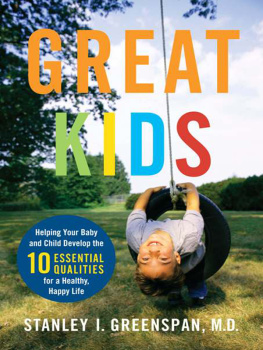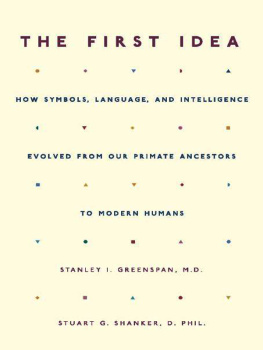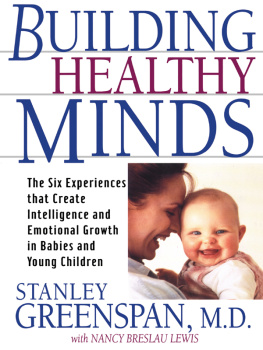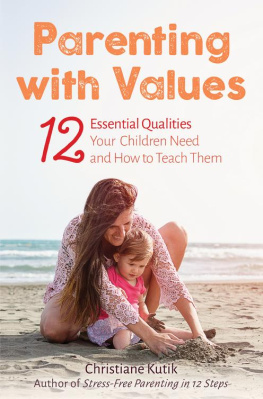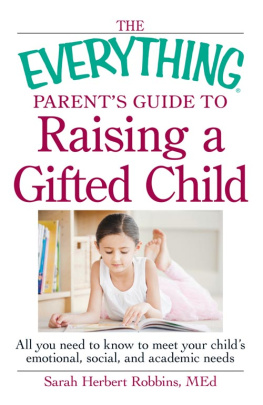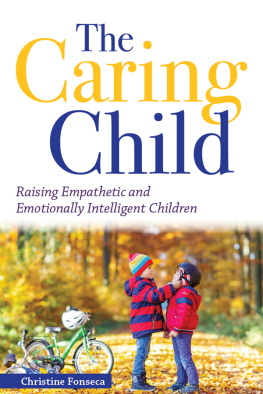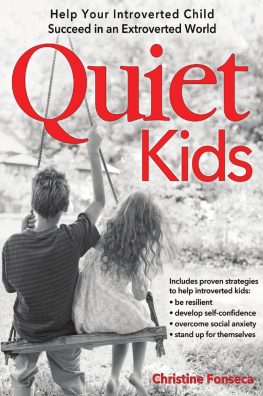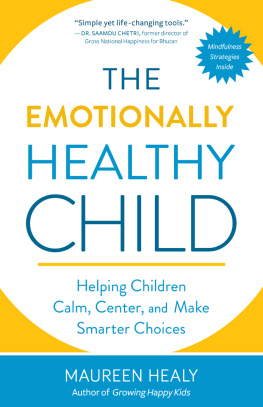Great Kids
Great Kids
Helping Your Baby and Child Develop the Ten Essential Qualities for a Happy, Healthy Life
STANLEY I. GREENSPAN, M.D.
Many of the designations used by manufacturers and sellers to distinguish their products are claimed as trademarks. Where those designations appear in this book and Da Capo Press was aware of a trademark claim, the designations have been printed in initial capital letters.
Copyright 2007 by Stanley I. Greenspan, M.D.
All rights reserved. No part of this publication may be reproduced, stored in a retrieval system, or transmitted, in any form or by any means, electronic, mechanical, photocopying, recording, or otherwise, without the prior written permission of the publisher. Printed in the United States of America.
Designed by Trish Wilkinson
Set in 12.5-point Adobe Garamond
First Da Capo Press edition 2007
ISBN-10 0-7382-0979-1
ISBN-13 978-0-7382-0979-1
eBook ISBN:9780738211763
A CIP data record for this book is available from the Library of Congress.
Published by Da Capo Press
A Member of the Perseus Books Group
www.dacapopress.com
Note: The information in this book is true and complete to the best of our knowledge. Information in this book is general and is offered with no guarantees on the part of the authors or of Da Capo Press. The author and publisher disclaim all liability in connection with the use of this book. The names and identifying details of people associated with events described in this book have been changed. Any similarity to actual persons is coincidental.
Da Capo Press books are available at special discounts for bulk purchases in the U.S. by corporations, institutions, and other organizations. For more information, please contact the Special Markets Department at the Perseus Books Group, 2300 Chestnut Street, Suite 200, Philadelphia, PA, 19103, or call (800) 255-1514 or e-mail
1 2 3 4 5 6 7 8 9
This book is dedicated to all the children of the world. They all have within them the potential to be great kids. Its our job to create a great world where this potential can flourish.
Preface
A lot is expected of children today. For many years, as a businessman, Ive been interested in the kinds of competency needed for success in a rapidly changing world. As technology and modes of communication advance at warp speed, the traits needed in order to shape a full and successful life have also changed. Schools, companies, professional organizations, even professional sports teams, have come to realize that being smart or having great physical skill is not enough to succeed now in our world. The batteries of tests they give to prospective applicants try to uncover what lies beneath, that is, what can we expect from this person above and beyond the usual? Savvy admissions directors and employers are looking for qualities such as emotional balance, logical thinking, discipline, ability to function under pressure, self-confidence, the ability to lead, etc. Theyve learned from their own past experience that these qualities are, if anything, more imperative for success than specific talents or brains.
Thirty years ago, when I looked into this question of essential traits, I was fortunate to learn about a group of professionals in early child development who were meeting regularly to share their research into the most basic needs of children and how parents can meet them. Among these forward-thinking individuals were Reginald Lourie, T. Berry Brazelton, Stanley Greenspan, Selma Freiberg, Albert Solnit, Sally Provence, Ron Lally, Julius Richmond, Peter Neubauer, Leon Yarrow, and Robert Nover. I was invited to participate and, after just one meeting, it was clear to me that we had a golden opportunity to do something meaningful for kids. This group welcomed the help of a businessman and together we created an organization devoted to helping families raise socially, emotionally, and cognitively healthy children. Thus, Zero to Three was born.
Today we have a multidisciplinary board of thirty-five experts in various fields and a marvelous and talented staff of more than seventy-five executing a budget approaching fifteen million dollars annually. Our goal is to give parents the information and support they need to do the best job possible. Although love is the most important ingredient in a parent-child relationship, it is just not enough. As parents, we must be informed if we want our kids to go out confidently into the world, to be happy and successful. I learned in business that it was more important to work smart than to work hard. Being a great parent today means being a smart parent.
In witnessing the impressive work of each of the brilliant clinicians in our organization, I was particularly drawn to the ideas of Stanley Greenspan, especially to his practice with developmentally challenged children. Instead of limiting therapy to behavioral training and the rote learning of simple tasks, he works to get inside the psyche of his patients. The result is not only a more cognitively accomplished child but a warm child with a healthy full range of emotions. Some of these kids bore a diagnosis of autism or speech delay, which turned out to be wrong. I have seen this with my own eyes. After twenty years of witnessing these minor (major to the parents) miracles, it occurred to me that if Stanley Greenspan could accomplish this with challenged children, we could apply this knowledge to help all our kids become richer in qualities that are paramount in life.
How to identify universally valuable qualities described in this book? We first compiled a broad list. We then needed to cull this list and get consensus on qualities that most of us would agree are critical to success in life. The traits selected were ones that child development experts, parents, and business leaders all valued as qualities important for kids to develop in order to become healthy, successful adults. It was important that parents value these traits so that they would want to encourage them. It was important that child development experts agree on the characteristics that are valuable not only in childhood but also for the later challenges that come with adolescence, marriage, career, parenthood. It was important to satisfy the various professional people we polled who knew very well what qualities were most important for success in their fields. With that first long list, we then asked a great range of people to choose the must have qualities, and to rank them. This group, spread across the United States and Canada, included professionals in medicine, law, the arts, education, and executives from all kinds of organizations. All had experience seeing how some people succeeded and some failed, and why. Spouses or partners answered independently. Bringing my own preconceived notions to the table, I was sure that men would rank the qualities differently than women, and that businessmen would have a different take than educators. People in the technical fields would respond differently than those in the arts. We all assumed that easterners see things differently than westerners or those in the Midwest. We also assumed that the various cultural groups would respond differently. Wrong in every case! People responded completely as individuals and came up with a set of nearly universally valued qualities. There was agreement across gender, professions, and cultures.

